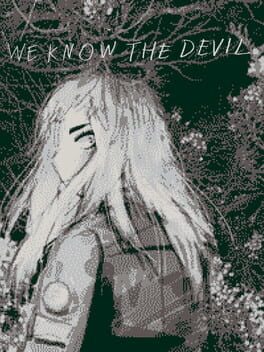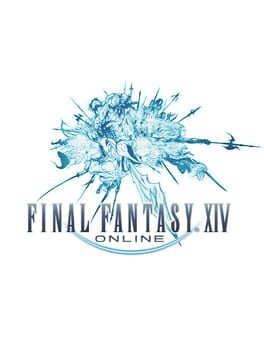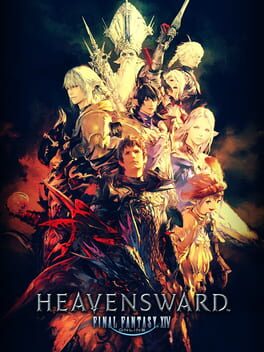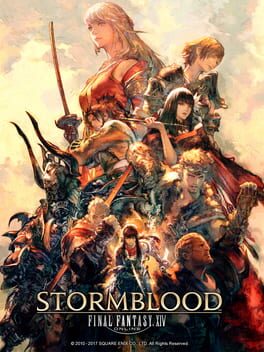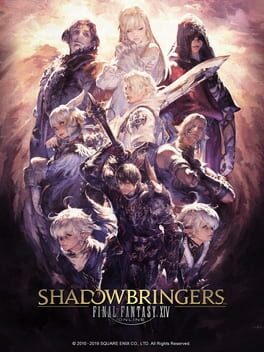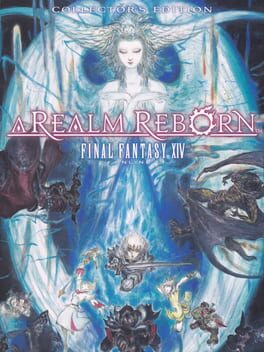phiblue
21 reviews liked by phiblue
1000xResist
2024
i'm not exaggerating when i say this is one of the most incredible games i've had the pleasure of playing. everything about this game is so carefully crafted and unapologetic about its style and sentimentality. the cinematic shot compositions and camera work are peak -- every cutscene frame could be a painting made for a wong kar-wai animated sci-fi film.
without digging into spoilers, the wide breadth of themes present in the narrative (anti-asian racism, experience of the asian diaspora , historical revisionism, intergenerational trauma, cycles of abuse and violence, motherhood and girlhood, etc etc) are covered with such thought-provoking depth and care. the writing is so succinct and sharp -- cutting straight to the emotional core that perfectly balances tragedy and the grief that follows with hope and levity in the connections we make within our relationships. it never feels pretentious or preachy -- it's honest. it perfectly captures both the beauty and cruelty of what it means to be alive.
genuinely a game i will think about forever... i never write reviews and i don't think i'll make a habit of doing so, but i felt the need to write something short because i genuinely think this is a masterful portrayal of storytelling in games....thank you to the devs who worked on this game <3
without digging into spoilers, the wide breadth of themes present in the narrative (anti-asian racism, experience of the asian diaspora , historical revisionism, intergenerational trauma, cycles of abuse and violence, motherhood and girlhood, etc etc) are covered with such thought-provoking depth and care. the writing is so succinct and sharp -- cutting straight to the emotional core that perfectly balances tragedy and the grief that follows with hope and levity in the connections we make within our relationships. it never feels pretentious or preachy -- it's honest. it perfectly captures both the beauty and cruelty of what it means to be alive.
genuinely a game i will think about forever... i never write reviews and i don't think i'll make a habit of doing so, but i felt the need to write something short because i genuinely think this is a masterful portrayal of storytelling in games....thank you to the devs who worked on this game <3
We Know the Devil
2015
Heavensward is the best story that Final Fantasy has ever told. Later expansions had great stories, too, but Heavensward immediately established a bar for FFXIV that it could never quite live up to. Every inch of the story is etched with meaning. The emotional burden placed upon the player in its first moments - trudging across a long bridge through the cold to reach solace in an unfamiliar land in the north. The way that Ishgard as a setting is fleshed out in every bare detail, such that the player can't help but come to call it home, even as the rot at its core is laid bare. The desperation inherent to the narrative, both that of the player character and their friends and that of the two nations at the story's heart. The way that the weight of millennia bears down upon you. Heavensward is a story about history; about the sins of our fathers; about love and loss; about holding on and letting go. There is much great storytelling in FFXIV after this point, but there is nothing else quite like all the quiet beauty of Heavensward: A calm moment around a campfire in Dravania. A push into the blinding snow of Coerthas, wind against your face. A small shared moment of resolution between two friends who have lost so much; a promise to never see another comrade fall. A last smile given to a dying friend. Many stories in Final Fantasy - and in FFXIV - are great in aggregate. Heavensward is great in aggregate, too, but its power lies in the thunderous emotion it conjures in every little moment.
Heavensward is also the best expansion that Final Fantasy XIV has ever had. This was FFXIV at the height of its creativity. Combat was still wonky and weird and dynamic like ARR before it, but increasingly complex and precise like what would come after. This was when the game's nascent raiding scene first exploded into something really worth paying attention to. It was when fight design managed to hit a point between weird uniqueness and consistent intuitiveness. The era of caster Bard and Ninja venoms and Cleric Stance dancing and Summoner rotations that require a dissertation to explain. It was FFXIV at its most intricate and layered, and ultimately at its most self-actualized.
Heavensward wasn't perfect, but it was what Final Fantasy XIV was meant to be - the truest expression of its core ideas.
Heavensward is also the best expansion that Final Fantasy XIV has ever had. This was FFXIV at the height of its creativity. Combat was still wonky and weird and dynamic like ARR before it, but increasingly complex and precise like what would come after. This was when the game's nascent raiding scene first exploded into something really worth paying attention to. It was when fight design managed to hit a point between weird uniqueness and consistent intuitiveness. The era of caster Bard and Ninja venoms and Cleric Stance dancing and Summoner rotations that require a dissertation to explain. It was FFXIV at its most intricate and layered, and ultimately at its most self-actualized.
Heavensward wasn't perfect, but it was what Final Fantasy XIV was meant to be - the truest expression of its core ideas.
Stormblood's narrative is overhated in the extreme. Its story is - intentionally - less immediate; less personal; less focused on tugging the player's heartstrings. But in the grand scheme of Final Fantasy XIV, its function is obvious. Stormblood is a way station. It's a moment to breathe and get out of your head, and to turn outward. Stormblood lays heady topics like the burden of history and the slow buildup of trauma to rest for a moment, and instead shows curiosity toward the world around your player character - friends they've really barely known, struggling with invisible burdens; allies from across the world, fighting a battle you can't really understand. It's a story as much about road trips and side adventures as it is about war and strife. It may be The War Expansion, but equally is it The Vacation Expansion. It's loose and full of ideas, and willing to be goofy. It has the player fighting ghosts in haunted islands and diving into undersea bubble-cities and mediating romantic spats, just as much as it has them leading armies and witnessing other people's trauma. It manages those two conflicting emotional tones perfectly, and the resulting story is a wonderful breath of fresh air between the weight and self-seriousness of both Heavensward and Shadowbringers.
And it was probably the peak of FFXIV in its gameplay. Its job design was streamlined and toned down from the beautiful insanity of Heavensward, but it maintained depth and interesting ideas at every single level for every single job, striking a really effective midpoint between complexity and accessibility. I love Heavensward, but understand that aspects of its gameplay were too much for people - Stormblood is the answer to that; the ideal midpoint. Where Stormblood really superseded its predecessor, though, was in the breadth and variety of content. Stormblood saw FFXIV's designers really come into their own in terms of fight design; Trials, Alliance Raids, Savage, and even dungeons were all consistently well-conceived, and again hit a really engaging midpoint between consistency and complexity. And it was the expansion where FFXIV really figured out how to design outward from its core content - it gave us Ultimates to inject new life into the hardcore raiding scene; Eureka to give casuals hours upon hours of passive content; little side stories like Doma Restoration to keep the narrative lush.
Stormblood was the best version of FFXIV as an ecosystem. It had its flaws, and represented a shift away from FFXIV's peak form, but it also represented the most sustainable vision for FFXIV's future. In an ideal world, every expansion after Stormblood was like Stormblood.
And it was probably the peak of FFXIV in its gameplay. Its job design was streamlined and toned down from the beautiful insanity of Heavensward, but it maintained depth and interesting ideas at every single level for every single job, striking a really effective midpoint between complexity and accessibility. I love Heavensward, but understand that aspects of its gameplay were too much for people - Stormblood is the answer to that; the ideal midpoint. Where Stormblood really superseded its predecessor, though, was in the breadth and variety of content. Stormblood saw FFXIV's designers really come into their own in terms of fight design; Trials, Alliance Raids, Savage, and even dungeons were all consistently well-conceived, and again hit a really engaging midpoint between consistency and complexity. And it was the expansion where FFXIV really figured out how to design outward from its core content - it gave us Ultimates to inject new life into the hardcore raiding scene; Eureka to give casuals hours upon hours of passive content; little side stories like Doma Restoration to keep the narrative lush.
Stormblood was the best version of FFXIV as an ecosystem. It had its flaws, and represented a shift away from FFXIV's peak form, but it also represented the most sustainable vision for FFXIV's future. In an ideal world, every expansion after Stormblood was like Stormblood.
If Shadowbringers was just a 40-hour single-player story and nothing else, then this would be an easy 5/5. Shadowbringers' story is one of the best in JRPG history. I personally like it less than Heavensward, but only slightly less. I recognize its mastery over all that it sets out to achieve. It is essentially perfect, and deserves all the extensive acclaim that it's received over the years.
But you don't need me to tell you that Shadowbringers' story is good. And unfortunately, Shadowbringers was not just a 40-hour single-player story. Shadowbringers was an expansion, and the legacy of that expansion is... Complicated.
What Shadowbringers ultimately represented was the path forward into Final Fantasy XIV's future - a vision for FFXIV's final form. What that ended up really meaning was turning FFXIV into something easier, but lesser. This was where Square Enix threw down a gauntlet, declaring that they would be tackling and removing any and all adversity in game design. No friction could remain. This meant, first and foremost, that every single job was massively simplified across the board. It meant that Stormblood's excellent midpoint - complex and deep like Heavensward, but easier to manage and with a lower skill floor - was essentially obliterated. Instead, Square Enix presented us with a new model of job design: One where the player ought to be able to achieve peak performance simply by pressing their buttons off cooldown forever.
It wasn't so bad. At the time, it felt terrible, but in retrospect the combat was nowhere near as simplified as it could have been (and later was). But in the moment, it was so easy to feel all the enticing friction being stripped out of the game. Unique buffs reduced to basic multipliers; little bits of RPG interaction stripped out for being too tedious; jobs reworked into shadows of their former selves. For those of us very attached to FFXIV's previous combat design philosophy, it was sad.
And the rest of the expansion was all kinda just like that. None of it was bad, necessarily, but it was all so focused on eliminating friction and presenting a surface-level hit of dopamine. The patch narratives were broadly just filling time outside of the notable exception of 5.3. Side content was reduced to a less interesting form - Bozja was Eureka without the tension or the joy of exploration; Relics were trivialized; the Alliance Raid series turned out to be the lamest crossover of all time, existing purely for uninteresting fanservice. The Trials were fine, but just fine. There were a few very memorable Savage fights, but far more generic stand-in-clock-spots slogs. The one Ultimate we got was great, but there was only one. So on and so forth.
In retrospect, the expansion is fine. It avoided so many of the mistakes that Endwalker would go on to make, and it was still basically enjoyable, if a frustrating downgrade from the expansions before it. But much of what makes it feel fine now is knowledge of just how bad it would end up getting, and so much of Shadowbringers now feels like a warning. This expansion was Square Enix presenting to us their vision for Final Fantasy XIV as a broadly popular cash cow, and that vision was clearly communicated to be one of making FFXIV a less interesting game to play.
But you don't need me to tell you that Shadowbringers' story is good. And unfortunately, Shadowbringers was not just a 40-hour single-player story. Shadowbringers was an expansion, and the legacy of that expansion is... Complicated.
What Shadowbringers ultimately represented was the path forward into Final Fantasy XIV's future - a vision for FFXIV's final form. What that ended up really meaning was turning FFXIV into something easier, but lesser. This was where Square Enix threw down a gauntlet, declaring that they would be tackling and removing any and all adversity in game design. No friction could remain. This meant, first and foremost, that every single job was massively simplified across the board. It meant that Stormblood's excellent midpoint - complex and deep like Heavensward, but easier to manage and with a lower skill floor - was essentially obliterated. Instead, Square Enix presented us with a new model of job design: One where the player ought to be able to achieve peak performance simply by pressing their buttons off cooldown forever.
It wasn't so bad. At the time, it felt terrible, but in retrospect the combat was nowhere near as simplified as it could have been (and later was). But in the moment, it was so easy to feel all the enticing friction being stripped out of the game. Unique buffs reduced to basic multipliers; little bits of RPG interaction stripped out for being too tedious; jobs reworked into shadows of their former selves. For those of us very attached to FFXIV's previous combat design philosophy, it was sad.
And the rest of the expansion was all kinda just like that. None of it was bad, necessarily, but it was all so focused on eliminating friction and presenting a surface-level hit of dopamine. The patch narratives were broadly just filling time outside of the notable exception of 5.3. Side content was reduced to a less interesting form - Bozja was Eureka without the tension or the joy of exploration; Relics were trivialized; the Alliance Raid series turned out to be the lamest crossover of all time, existing purely for uninteresting fanservice. The Trials were fine, but just fine. There were a few very memorable Savage fights, but far more generic stand-in-clock-spots slogs. The one Ultimate we got was great, but there was only one. So on and so forth.
In retrospect, the expansion is fine. It avoided so many of the mistakes that Endwalker would go on to make, and it was still basically enjoyable, if a frustrating downgrade from the expansions before it. But much of what makes it feel fine now is knowledge of just how bad it would end up getting, and so much of Shadowbringers now feels like a warning. This expansion was Square Enix presenting to us their vision for Final Fantasy XIV as a broadly popular cash cow, and that vision was clearly communicated to be one of making FFXIV a less interesting game to play.
It hurts to rate this expansion so low, because its narrative really doesn't deserve that. It doesn't really reach the heights of Heavensward or Shadowbringers, but it also doesn't really need to; it maintained the saga's momentum well enough to stick the landing, which was all that it needed to do. It was properly emotional, expanded and engaged with the game's lore without convoluting things too badly, and wrapped it all up in a neat thematic bow. There are plenty of nitpicks to make (I have many), but ultimately it was a good finale, and that was enough.
Unfortunately, as with Shadowbringers, Endwalker is not just a narrative. It is also an MMO expansion - and Endwalker is clearly and unambiguously the worst expansion in Final Fantasy XIV.
Endwalker was made with the intent of streamlining the game as much as possible. Streamlining isn't inherently a bad thing, but there's a degree of it that starts to erode the game's soul. FFXIV reached that level in Shadowbringers. Endwalker amplified it by ten. Every job has anything particularly interesting about it removed. The game's combat is put on rails, so that no player could make the wrong decisions, not if they tried. Fight design finally tips over from an engaging telegraphed dance to a predictable, repetitive sequence of templated mechanics. Every interesting subsystem is flattened. Every rough edge is smoothed out. Every bit of emergent gameplay is ripped to shreds. You will only play Final Fantasy XIV how Square Enix wants you to play Final Fantasy XIV, and Square Enix wants you to play Final Fantasy XIV by pressing 1-2-3 in order and seeing cool animations play and that is all that they want you to do.
So much about FFXIV is still great. The narrative is not and will never be anything less than great; side content is still broadly engaging, if increasingly sparse; the world and music and so on are still spectacular. But FFXIV is increasingly not a game that wants to be played. It wants to be looked at; to be engaged with solely on its terms, because interaction and creativity are anathema to its vision of a perfectly balanced world.
What was once my favourite MMO of all time has become a game which seemingly doesn't want its players to play it - just to watch. And man, does that break my heart.
Unfortunately, as with Shadowbringers, Endwalker is not just a narrative. It is also an MMO expansion - and Endwalker is clearly and unambiguously the worst expansion in Final Fantasy XIV.
Endwalker was made with the intent of streamlining the game as much as possible. Streamlining isn't inherently a bad thing, but there's a degree of it that starts to erode the game's soul. FFXIV reached that level in Shadowbringers. Endwalker amplified it by ten. Every job has anything particularly interesting about it removed. The game's combat is put on rails, so that no player could make the wrong decisions, not if they tried. Fight design finally tips over from an engaging telegraphed dance to a predictable, repetitive sequence of templated mechanics. Every interesting subsystem is flattened. Every rough edge is smoothed out. Every bit of emergent gameplay is ripped to shreds. You will only play Final Fantasy XIV how Square Enix wants you to play Final Fantasy XIV, and Square Enix wants you to play Final Fantasy XIV by pressing 1-2-3 in order and seeing cool animations play and that is all that they want you to do.
So much about FFXIV is still great. The narrative is not and will never be anything less than great; side content is still broadly engaging, if increasingly sparse; the world and music and so on are still spectacular. But FFXIV is increasingly not a game that wants to be played. It wants to be looked at; to be engaged with solely on its terms, because interaction and creativity are anathema to its vision of a perfectly balanced world.
What was once my favourite MMO of all time has become a game which seemingly doesn't want its players to play it - just to watch. And man, does that break my heart.
A Realm Reborn was secretly FFXIV at its peak and I'm not joking. Like no, it was not the actual "best" expansion, but the sort of aura of wonder and discovery and community present was unlike anything in the entire game ever since, and honestly in most of MMOs since. It was a time when everything was a little harder, and a little clunkier, and a little less convenient. It was a time when the base Eorzea zones felt like a vast, beautiful world; when a glamour prism was a valuable object; when a rotation involved six buffs and thirty timers to juggle. Its story - especially the far overhated 2.x storylines - demanded patience, but rewarded the player with so much worldbuilding and personality and little explorations of the softer moments between people.
FFXIV after ARR became a better game, but it would never again have that sort of purity of vision. Every expansion since ARR has been FFXIV making itself a little more fun to play at the cost of shaving away a little bit of its soul, one streamlined mechanic and simplified dungeon at a time.
FFXIV after ARR became a better game, but it would never again have that sort of purity of vision. Every expansion since ARR has been FFXIV making itself a little more fun to play at the cost of shaving away a little bit of its soul, one streamlined mechanic and simplified dungeon at a time.
Lies of P
2023
Lies of P is the funniest video game of 2023.
It's also the best non-FromSoftware Soulslike ever made, and it's not particularly close. Lies of P is maybe the only game that's adhered strictly to FromSoft's design principles and also managed to get somewhere near standing toe-to-toe with FromSoft themselves. There are a lot of reasons for this: Gameplay feels great on a very primal level; combat design has genuinely unique ideas that are built around to forge a strong identity; the world and story are shockingly engaging. All of that is fantastic. It's what makes Lies of P fun and interesting to play. But it's not the reason why Lies of P manages to approach greatness. Lies of P's real success is in how completely unhinged it is - in the fundamental comedy of it all.
People like to talk about FromSoft games being "fair" and "balanced" and "not cheap". These people are liars who, in their dishonesty, do Hidetaka Miyazaki et al. a massive disservice. Souls games are stupid and unfair. Souls games are out to get you. They're filled with dumb tricks designed to screw the player over. Sometimes that's a gimmick boss that forces you to rely on something completely different than the strategies most of the game is built around. Sometimes it's a poisoned swamp that makes basic traversal obnoxious. Often it's deranged enemy design and placement (think the Anor Londo archers). Souls games revel in playing stupid little pranks on the player - in introducing chests that are actually going to eat you; in locking content behind unindicated invisible walls; in giving the player major debuffs through innocuous actions and then not communicating that.
There's a tendency to treat these things as exceptions to some imagined core value of Soulslikes, as though the Platonic ideal of a Souls game is something perfectly fair and never annoying or dishonest and anything that is annoying or dishonest is a corruption of that pure ideal. And that misses the point of this genre. Because really, these games are made very specifically to be annoying and unfair. Deep down, that's what's so fun about them. You put hours into dying to stupid things and laughing about it, and then you slog through it anyway. That's what makes these games so satisfying to play. It's what makes beating them feel like such an accomplishment. It's what makes every inch of forward progression feel earned. It's what makes this genre so funny.
The Soulslike genre is, in truth, a genre of comedy - maybe the most inherently comedic game genre. A Soulslike is supposed to be funny, and can't be truly great unless it is, at least a little bit. And Lies of P is a very, very funny video game.
This is what Lies of P fundamentally understands about the genre. Lies of P is filled with nonsense (affectionate). One section of the game forces the player to platform (using controls deeply unsuited for platforming) on narrow rafters while enemies pelt them with projectiles that can and will knock the player off the beam to their death. Another positions the enemy below some snipers, then puts a bunch of hidden bear traps in front of them so that they're immobilized when they inevitably panic and run for their lives. The first eight bosses freely allow the player to abuse summons and farmed consumables for relatively easy wins, while the ninth takes those options away just to make sure the player is paying attention. All of these bits of gameplay (and many more) are cruel, and unfair, and extremely stupid, and hilarious.
That's the sort of joke that Lies of P loves to tell. It fully believes in the idea that Souls games should be made for masochists. It's a game of untelegraphed ambushes and hilariously punishing traps and completely insane encounter design. It's a game that will, at least once, kill you in a way that's completely outside of your control.
All of this is a good thing. It's why Lies of P succeeds where so many have failed. It doesn't try to be fair or accommodating. Much like FromSoftware before them, Neowiz is out to get you. They want you to suffer and die before you ever find success. They know the secret truth of video games, which is that screwing the player over can actually be an extremely valid design choice, or even a necessary one. They know that screwing the player over can be so, so funny - and Lies of P loves to screw the player over.
It's also the best non-FromSoftware Soulslike ever made, and it's not particularly close. Lies of P is maybe the only game that's adhered strictly to FromSoft's design principles and also managed to get somewhere near standing toe-to-toe with FromSoft themselves. There are a lot of reasons for this: Gameplay feels great on a very primal level; combat design has genuinely unique ideas that are built around to forge a strong identity; the world and story are shockingly engaging. All of that is fantastic. It's what makes Lies of P fun and interesting to play. But it's not the reason why Lies of P manages to approach greatness. Lies of P's real success is in how completely unhinged it is - in the fundamental comedy of it all.
People like to talk about FromSoft games being "fair" and "balanced" and "not cheap". These people are liars who, in their dishonesty, do Hidetaka Miyazaki et al. a massive disservice. Souls games are stupid and unfair. Souls games are out to get you. They're filled with dumb tricks designed to screw the player over. Sometimes that's a gimmick boss that forces you to rely on something completely different than the strategies most of the game is built around. Sometimes it's a poisoned swamp that makes basic traversal obnoxious. Often it's deranged enemy design and placement (think the Anor Londo archers). Souls games revel in playing stupid little pranks on the player - in introducing chests that are actually going to eat you; in locking content behind unindicated invisible walls; in giving the player major debuffs through innocuous actions and then not communicating that.
There's a tendency to treat these things as exceptions to some imagined core value of Soulslikes, as though the Platonic ideal of a Souls game is something perfectly fair and never annoying or dishonest and anything that is annoying or dishonest is a corruption of that pure ideal. And that misses the point of this genre. Because really, these games are made very specifically to be annoying and unfair. Deep down, that's what's so fun about them. You put hours into dying to stupid things and laughing about it, and then you slog through it anyway. That's what makes these games so satisfying to play. It's what makes beating them feel like such an accomplishment. It's what makes every inch of forward progression feel earned. It's what makes this genre so funny.
The Soulslike genre is, in truth, a genre of comedy - maybe the most inherently comedic game genre. A Soulslike is supposed to be funny, and can't be truly great unless it is, at least a little bit. And Lies of P is a very, very funny video game.
This is what Lies of P fundamentally understands about the genre. Lies of P is filled with nonsense (affectionate). One section of the game forces the player to platform (using controls deeply unsuited for platforming) on narrow rafters while enemies pelt them with projectiles that can and will knock the player off the beam to their death. Another positions the enemy below some snipers, then puts a bunch of hidden bear traps in front of them so that they're immobilized when they inevitably panic and run for their lives. The first eight bosses freely allow the player to abuse summons and farmed consumables for relatively easy wins, while the ninth takes those options away just to make sure the player is paying attention. All of these bits of gameplay (and many more) are cruel, and unfair, and extremely stupid, and hilarious.
That's the sort of joke that Lies of P loves to tell. It fully believes in the idea that Souls games should be made for masochists. It's a game of untelegraphed ambushes and hilariously punishing traps and completely insane encounter design. It's a game that will, at least once, kill you in a way that's completely outside of your control.
All of this is a good thing. It's why Lies of P succeeds where so many have failed. It doesn't try to be fair or accommodating. Much like FromSoftware before them, Neowiz is out to get you. They want you to suffer and die before you ever find success. They know the secret truth of video games, which is that screwing the player over can actually be an extremely valid design choice, or even a necessary one. They know that screwing the player over can be so, so funny - and Lies of P loves to screw the player over.
Say, Junpei... Have you ever heard of [Nine Hours, Nine Persons, Nine Doors]? They say it's a game where you can solve puzzles... And they're actually really good... But not only that... The story is also supposed to be really good, too! It makes me wonder... What if the words I'm saying right now... Aren't even real? What if I'm not even a person... I could just be a [fake character] in a [pointless bit] at the beginning of a [Backloggd review for 999]! I'm not saying I believe that, of course... It's just something to think about.
I'm not as good at exposition dumping about pseudoscience as Kotaro Uchikoshi, but you get the point. Zero Escape's writing is easy to joke about, because it's very silly. The silliness, though, is targeted. It's crafted to serve a purpose, to build out a series of ideas that, over time, take shape as something with real meaning, and even beauty. You begin the game by chuckling over speeches about Ice-9 and glycerin. You end the game sobbing over a game of sudoku.
That's the thing about Kotaro Uchikoshi, the reason why he is my single favourite writer of video games. He doesn't just write deep characters and beautiful, thematically coherent narratives - he goes about it in a way that nobody else would ever even think to do. Nobody, nobody else is writing something like 999 but him. Nobody else is crafting a game in which the artificiality of player choice is expressed as an act of love. Nobody else is turning exposition into an inherent source of comfort and meaning. Nobody else is going to make you cry by asking you to physically flip over your Nintendo DS.
I'm not as good at exposition dumping about pseudoscience as Kotaro Uchikoshi, but you get the point. Zero Escape's writing is easy to joke about, because it's very silly. The silliness, though, is targeted. It's crafted to serve a purpose, to build out a series of ideas that, over time, take shape as something with real meaning, and even beauty. You begin the game by chuckling over speeches about Ice-9 and glycerin. You end the game sobbing over a game of sudoku.
That's the thing about Kotaro Uchikoshi, the reason why he is my single favourite writer of video games. He doesn't just write deep characters and beautiful, thematically coherent narratives - he goes about it in a way that nobody else would ever even think to do. Nobody, nobody else is writing something like 999 but him. Nobody else is crafting a game in which the artificiality of player choice is expressed as an act of love. Nobody else is turning exposition into an inherent source of comfort and meaning. Nobody else is going to make you cry by asking you to physically flip over your Nintendo DS.

